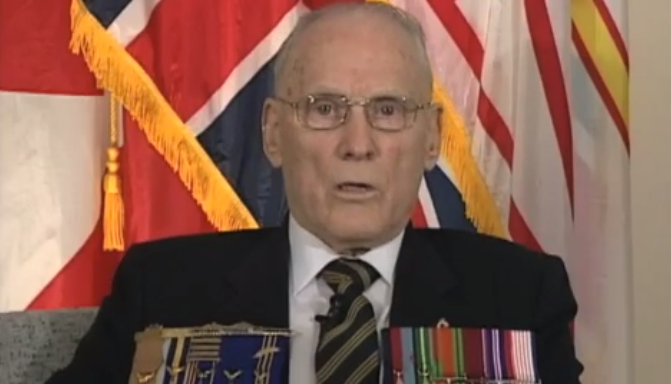Desperate Conditions in Great Britain
Heroes Remember
Desperate Conditions in Great Britain
Transcript
Description
Mr. Ford speaks about his impression of England during his time in camp, the scarcity of food and the realization that Great Britain was not prepared for the war.
John Ford
Mr. John Ford was born March 25, 1919 in Port-aux-Basques, Newfoundland. Both parents were previously married and Mr. Ford was raised in a family of 14 children, him being one of the younger children. As a child he attended school at the United School Academy graduating in Grade 11. After school he worked with the Newfoundland railway as a machinist for three years. In May of 1940, Mr. Ford decided to join the Royal Air Force. In August he went overseas onboard the Nova Scotia and landed in Liverpool, England. During his service, he was captured as a POW in Japan experiencing horrible conditions. He has dedicated much of his time to the Legion and volunteered as a board member for over 13 years. Mr. Ford is an active participant in visiting local schools and educating the youth of what life was really like as a solider and as a prisoner of war while serving with the Royal Air Force.
Meta Data
- Medium:
- Video
- Owner:
- Veterans Affairs Canada
- Duration:
- 2:04
- Person Interviewed:
- John Ford
- War, Conflict or Mission:
- Second World War
- Location/Theatre:
- England
- Branch:
- Air Force
Related Videos
- Date modified:




